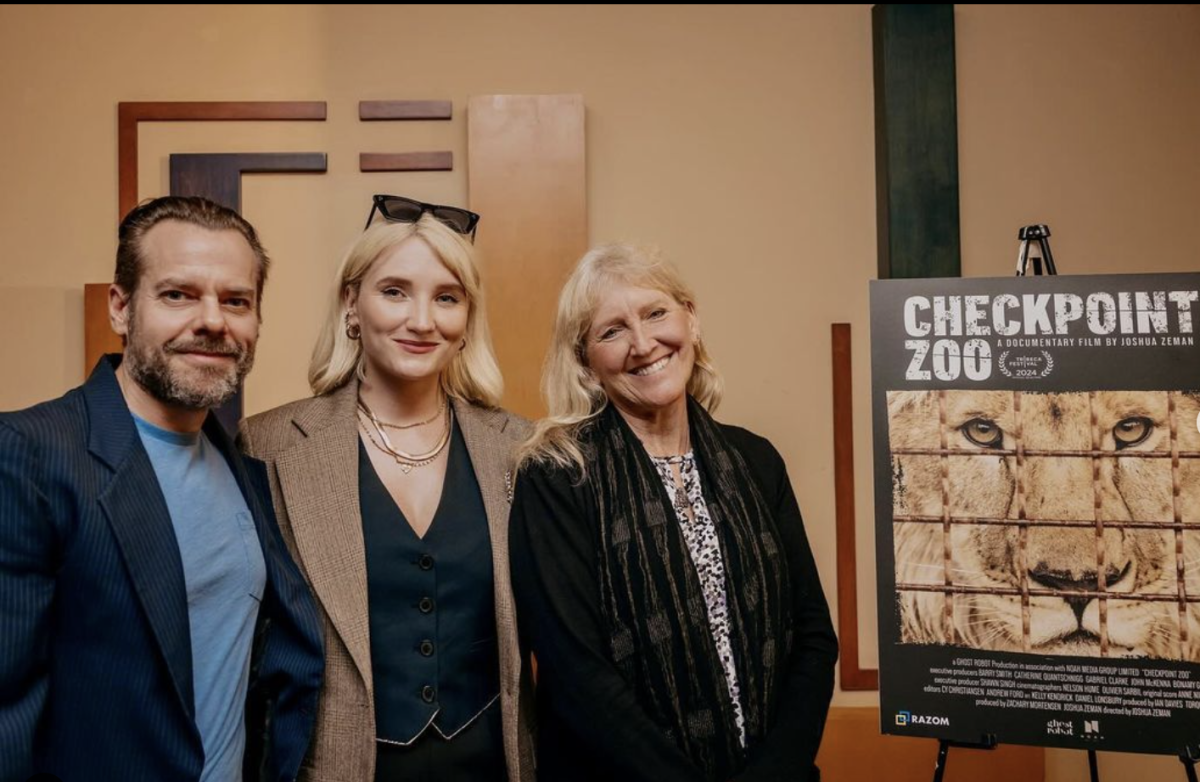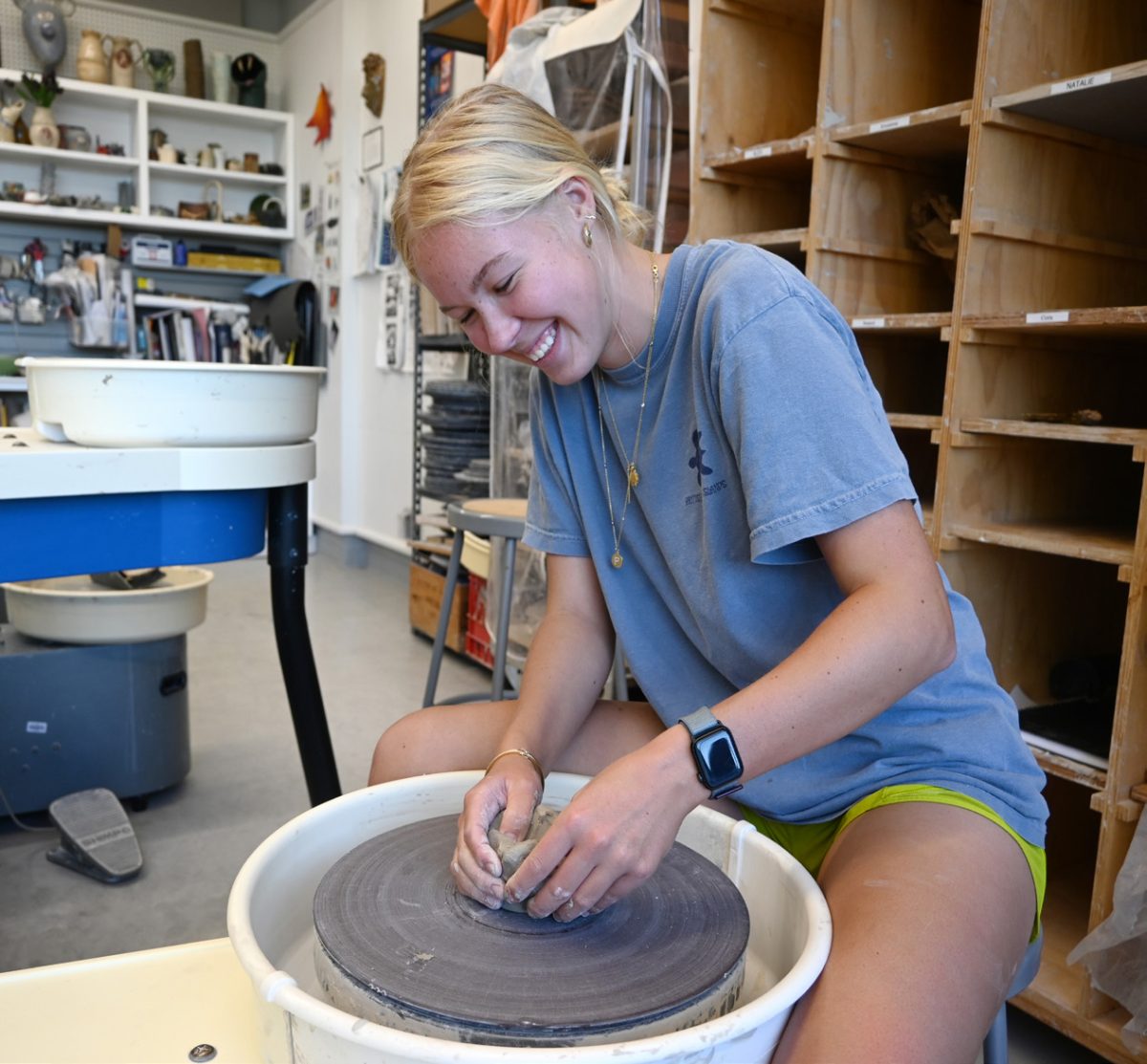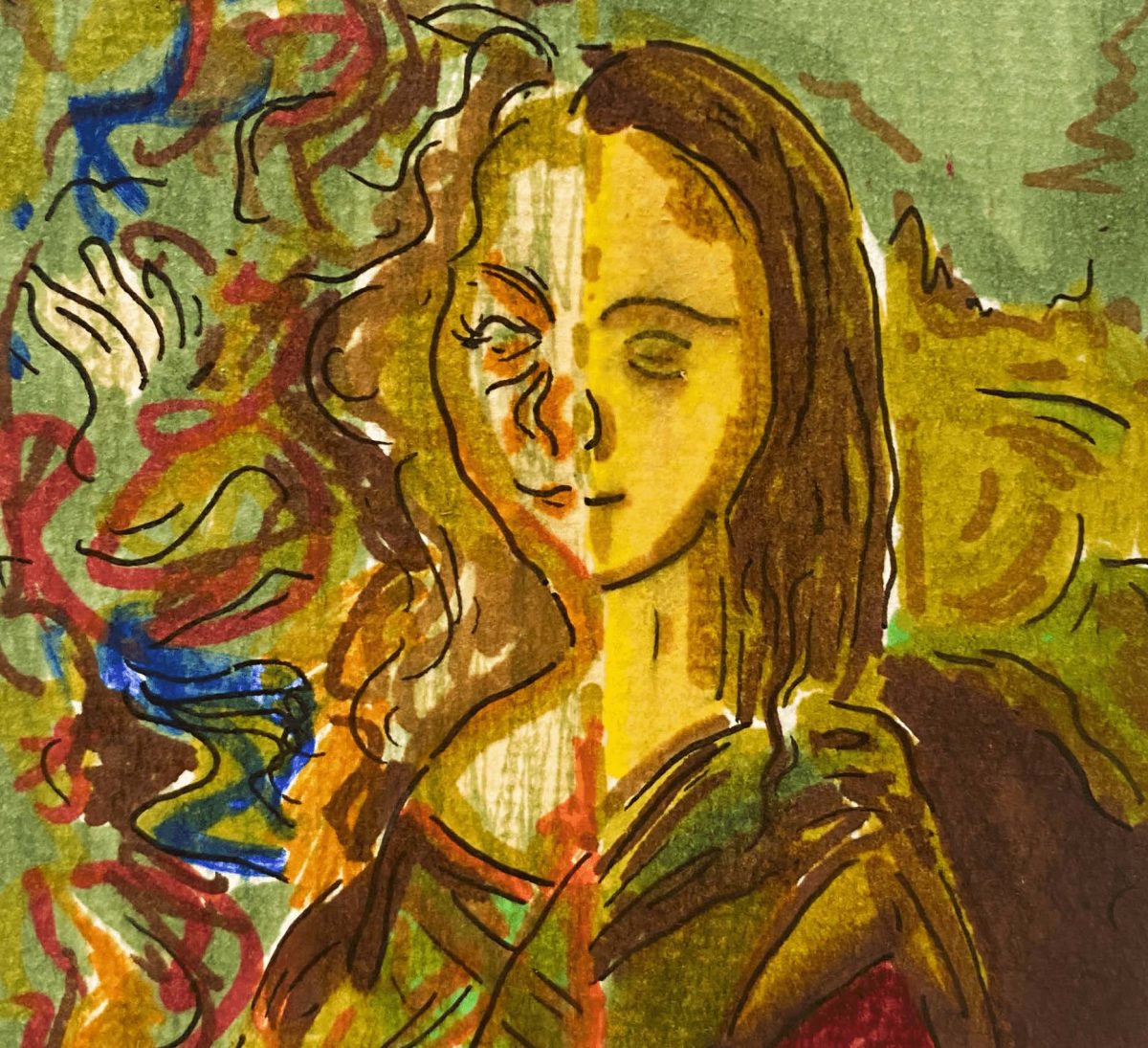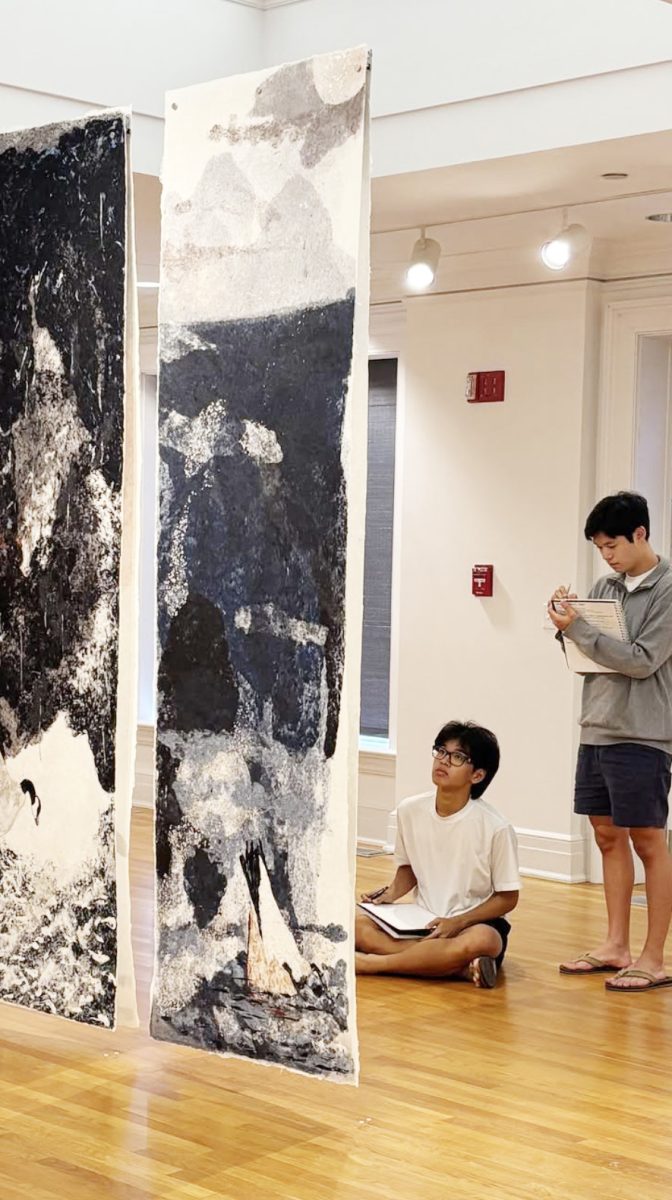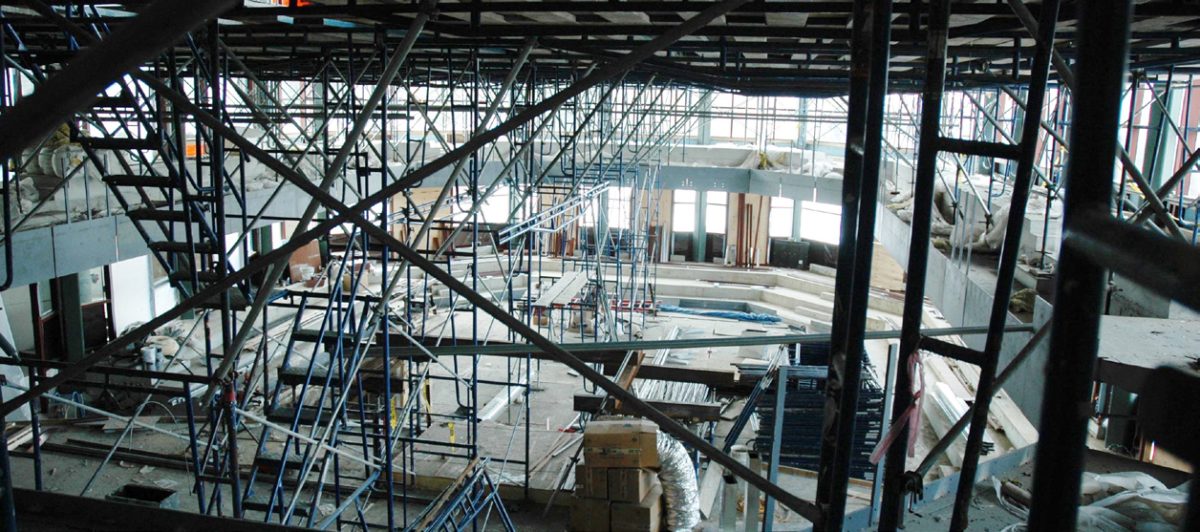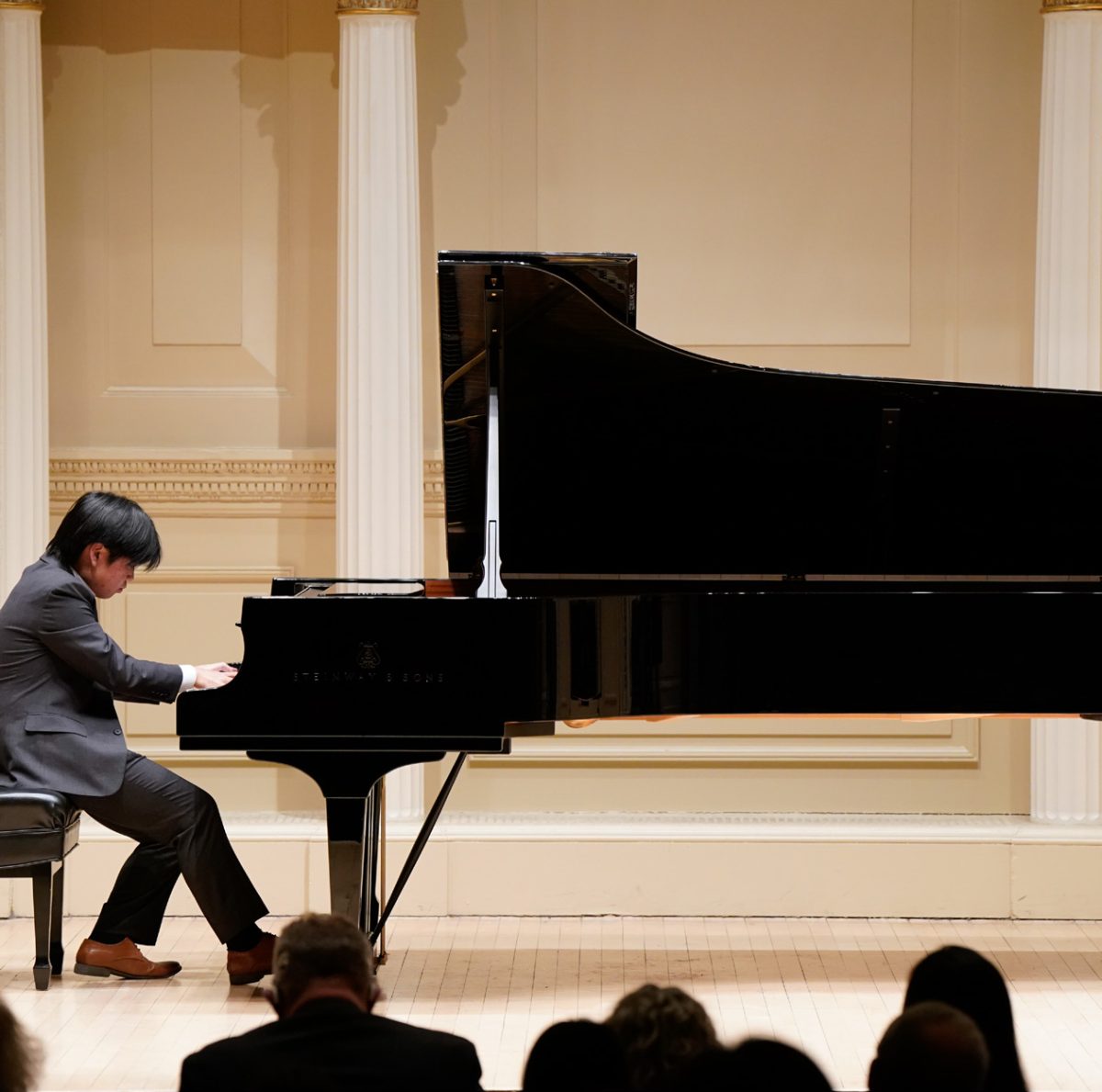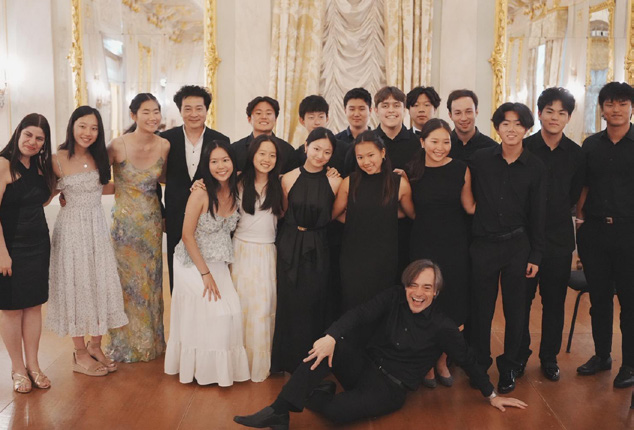On September 28, students were invited to an exclusive screening of the documentary Checkpoint Zoo and conversation with its director, Mr. Joshua Zeman. Filmed at the Feldman Ecopark Zoo in Kharkiv, Ukraine during the early days of the Russian invasion, the documentary follows a team of volunteers on a mission to bring more than 5,000 zoo animals to safety behind Ukrainian lines. Ukrainian students Oleh Shtunder ’25, Ira Buch ’25, and Diana Kravchenko ’26 joined a post-screening Q&A session with Mr. Zeman. Shtunder said, “The whole thing was possible because of Ms. Ann Villano, instructor in film, and her connection to Zeman. She has done an incredible job promoting the film industry and the situation of Ukraine on our campus. It was really important to share my, Ira’s, and Diana’s experiences with the war and its impacts.”
Why did you choose to focus on animals in your documentary about the invasion of Ukraine?
Juxtaposing an animal story against a story of war really highlights the interesting relationships we have with animals.
You always hear about the human toll of war, but very rarely do you hear how animals are affected.
The most shocking thing was when people said to me, “Oh, it’s not so bad [in Ukraine]. Just give back some of your land [to Russia]. People are going to get tired of [hearing about the war].”
As a journalist who’s covering Ukraine, my job is to find a different story to tell, so it feels fresh.
What was it like to work in a war zone?
There is an adrenaline rush covering wars.
As a director, there’s only so much I can do remotely. Once you shoot a scene you can use it in many different ways and change it, but you can’t know what something looks like unless you see it for yourself.
I didn’t know how complicated it was going to be to get to Ukraine with a war going on. I couldn’t fly, because the war made it a no-fly zone.
So I flew into Poland, then traveled three hours to the border. A woman took me across the border because all the men are enlisted in the army.
People were asking, “Is there going to be gasoline? Are you going to have cell phone service?”—all these things that we take for granted.
Once we landed, it took me four days to get to Kharkiv by car. A fixer picked me up and drove me all the way to Kharkiv with my cinematographer and our gear.

What were some of the complications you had to navigate?
Insurance is extremely expensive for journalists, which presents a barrier to people who want to cover wars. You have to work for CNN or be backed by a large company to be insured.
The majority of people in Ukraine do not speak English, and I had to have a simultaneous translator.
The people I interviewed were so passionate. When they heard I was a journalist, especially an American journalist covering the war, they were so happy and thankful to tell their stories to the rest of the world.
When I returned home, I was startled to hear that the hotel I stayed in while filming now lies in ruins.
One of my filmmaker friends told me, “Did you hear The Park Hotel got completely bombed?” Suddenly, I realized I probably should have been far more conscious of my life than I had been.
I hope that, through this film, and through the experiences of animals, people get a newfound appreciation for Ukrainians and those who undergo war.
Sometimes, we have such strong connections to animals that it allows us to feel more empathy for people in a war.

